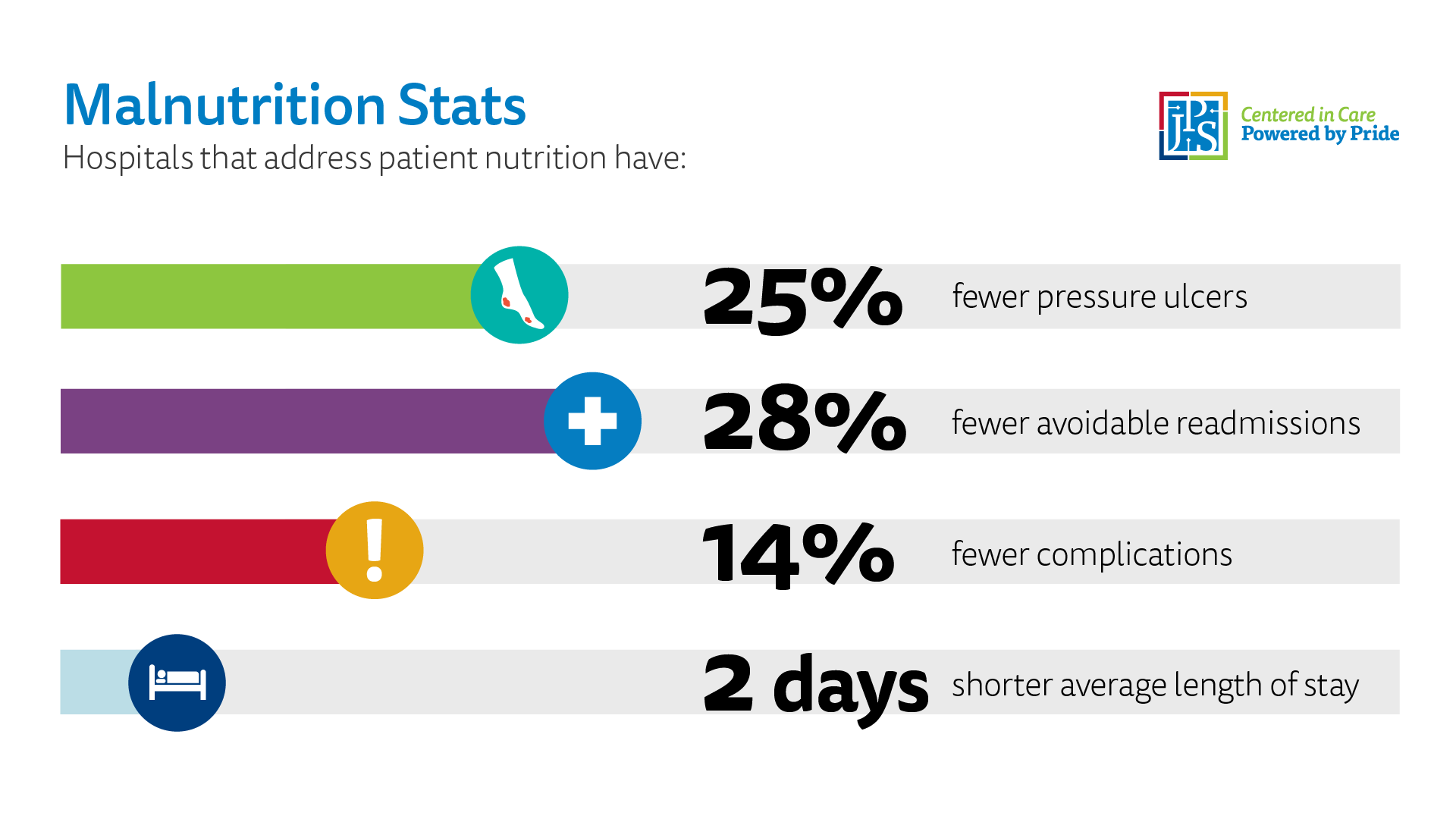A change in the way JPS Health Network processes Medicaid billing for some of its most vulnerable patients could save Tarrant County taxpayers about $45,000 a month providing necessary care.
According to JPS Manager of Clinical Nutrition Meradith Harris, 1,009 patients suffering from chronic malnutrition walked through the doors at JPS in 2017. In the first three months of this year, 312 malnourished patients came to JPS for care, a pace for 1,248 over the course of the year. A technicality in Medicaid rules made it difficult to bill for treatment of their dietary issues.

Benefits of improving patient nutrition
“Health problems related to malnutrition play a huge part of why patients come to the hospital,” Harris said. “People who don’t have enough nourishment are more likely to develop wounds and sores, to fall or to have problems recovering from surgery – including surgical site infections. When they’re admitted to the hospital they stay an average of two days longer than patients who aren’t malnourished and they have a higher likelihood of mortality.”
Because of these reasons, JPS makes it a priority to help patients build their strength and immune system through better nutrition. But the problem was that dietary services aren’t billable through Medicare and physicians weren’t diagnosing malnutrition in their patient files.
“We found that dieticians could not diagnose malnutrition on their own – but they could say in their notes that the patient meets the American Society for Parenteral and Enteral Nutrition (ASPEN) guidelines for severe malnutrition,” Harris said. “Once they do that and the physician co-signs the dietician’s documentation, it becomes something that we can bill for.”
Basically the dieticians are screening patients for malnourishment and pointing out the cases they find to doctors. If the physician agrees in the assessment, his or her signing off on it makes the treatment billable.
By making this change, Harris said JPS has been able to reduce the number of patients whose malnutrition treatment was not covered by Medicaid by 75 percent. Sound Physicians Group, one organization of doctors who work at JPS, reported 20 patients were treated for malnutrition since it adopted the new documentation procedure March 5. The payment from CMS, the Center for Medicare and Medicaid Services, for each patient is about $3,000.
Even greater savings could be realized in the future when these patients have less health issues to treat – or when they can cut two expensive days of time in the hospital out if they have to be admitted.
“Proper nutrition is vital when it comes to keeping patients healthy,” Harris said. “Physicians have been very open to this process. They have been great to work with and are very excited about it because they knew we were missing out on these opportunities” to recover funds JPS invests in care of malnourished patients.
